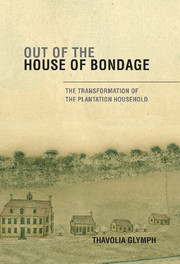Book contents
- Frontmatter
- Contents
- Acknowledgments
- Abbreviations
- Introduction
- 1 The Gender of Violence
- 2 “Beyond the Limits of Decency”
- 3 Making “Better Girls”
- 4 “Nothing but Deception in Them”
- 5 Out of the House of Bondage
- 6 “A Makeshift Kind of Life”
- 7 “Wild Notions of Right and Wrong”
- Epilogue
- Bibliography
- Index
- References
Introduction
Published online by Cambridge University Press: 05 June 2012
- Frontmatter
- Contents
- Acknowledgments
- Abbreviations
- Introduction
- 1 The Gender of Violence
- 2 “Beyond the Limits of Decency”
- 3 Making “Better Girls”
- 4 “Nothing but Deception in Them”
- 5 Out of the House of Bondage
- 6 “A Makeshift Kind of Life”
- 7 “Wild Notions of Right and Wrong”
- Epilogue
- Bibliography
- Index
- References
Summary
At the deepest levels of a man's being it cannot make sense that he should voluntarily labor for those whose style of thinking declares them to be his enemies and whose triumph in the management of human affairs remain a persistent threat to the dignity of his person.
George LammingTranquility and violence coexist.
Eric Hobsbawm“The word home has died upon my lips.” Writing to her son in late June 1865, Mary Jones summed up one outcome of the Civil War. Decades later, Katie Rowe remembered another. “It was de fourth day of June in 1865 I begins to live.” Without slaves to do the work of her home, Jones's world, her home, was dead. In that death, Katie Rowe saw life and a future to claim as her own. As a former mistress and a former slave, Jones and Rowe stood opposite each other in 1865. Once connected by the institution of slavery, they now faced a common task: to build new lives on the ground of freedom. Both were transformed. This book recounts that transformation. It is a story of freedom and unfreedom, race and gender, and nation and citizenship in the world of the nineteenth-century American South. That big abstract story is composed of equally big personal stories, from a woman's right to choose the dress she will wear to her right to live.
The story properly begins before the war, when enslaved and slaveholding women related to each other on the ground of slavery.
- Type
- Chapter
- Information
- Out of the House of BondageThe Transformation of the Plantation Household, pp. 1 - 17Publisher: Cambridge University PressPrint publication year: 2003

